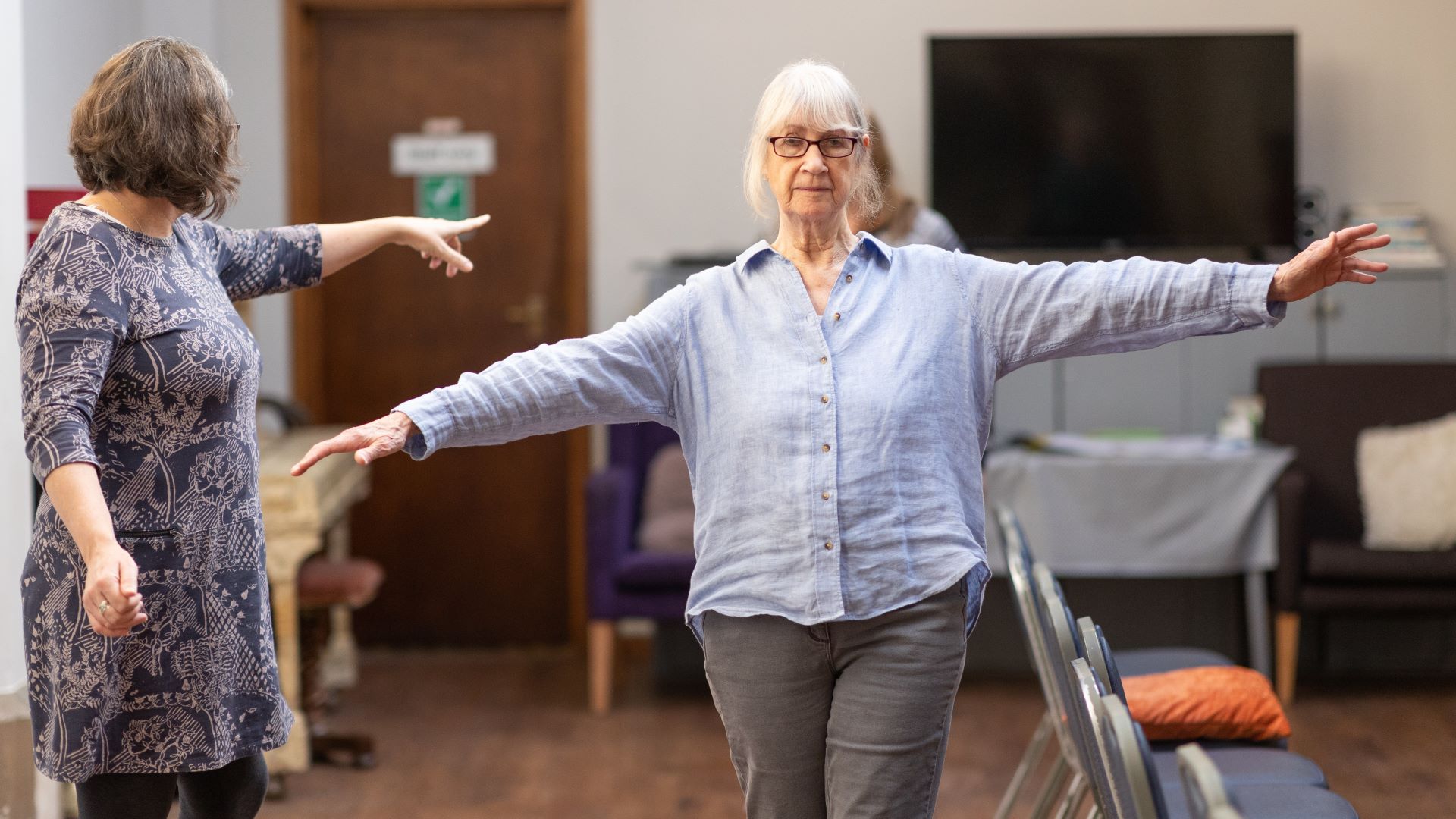Being active has many physical and mental health benefits, including reducing the risk of many long-term conditions; helping manage existing conditions; ensuring good musculoskeletal health; developing and maintaining physical and mental function and independence; supporting social inclusion; helping maintain a healthy weight; and reducing inequalities for people with long-term conditions.
In fact, the United Kingdom Chief Medical Officers have gone as far as saying that “if physical activity were a drug, we would refer to it as a miracle cure, due to the great many illnesses it can prevent and help treat”.
However, GPs and their teams have not always felt empowered to promote physical activity. Recognising this, the Royal College of General Practitioners (RCGP) launched the Active Practice Charter to facilitate simple but impactful changes which demonstrate to patients and staff that movement really is the best medicine.
Being an Active Practice can have significant impact on the health of individuals and communities linked to the practice. It’s also a great example of social prescribing ‘in action’ whereby people are connected with non-medical activities, groups and support.
“It was very important to spread the awareness of how important physical activity is and how that goes alongside physical and mental health.” Social Prescriber, Buckinghamshire.
To meet the Active Practice Charter criteria, practices need to demonstrate that they have taken steps to:
(1) reduce sedentary behaviour in staff;
(2) reduce sedentary behaviour in patients;
(3) increase physical activity in staff;
(4) increase physical activity in patients; and
(5) partner with a local physical activity provider. And it is here where the Active Medicine in Practice (AMiP) project stepped in to support three local practices as part of the Active Medicine™ programme.
At the start of 2022, we collaborated with two of our neighbouring Active Partnerships – Get Berkshire Active and Active Oxfordshire to work on a project funded by The Sports Council Trust Company. We were each tasked with selecting a GP practice in our area and supporting them with meeting the five criteria outlined by the RCGP. A bespoke package of support were subsequently developed for The Kintbury and Woolton Hill Surgeries, The Priory Surgery, and Blackbird Leys Community Practice. This led to all three practices becoming accredited as Active Practices.
“They were able to tell us what we needed to do to achieve Active Practice Charter status. They’ve also been really helpful in terms of helping us think about how we might want to achieve it and what our structure might be. They’ve been very supportive. Having the structure and knowing what we need to achieve, that’s been the key.” GP, Berkshire.
To learn more about the added value of Active Partnership support in gaining Active Practice Charter status, the project was also externally evaluated by The Centre for Sport, Physical Education and Activity Research (spear) at Canterbury Christ Church University. The evaluation report highlighted key learnings for Active Partnerships and GP practices to facilitate more becoming Active Practices.
Recommendations for GP Practices:
· Adopt a ‘whole practice’ approach the Active Practice Charter scheme. Engaging all staff enhances organisational learning, eases implementation, and increases the likelihood of lasting behaviour change among staff and patients. Ensure all staff receive some training and have the chance to inform, shape and drive your Active Practice.
· Create beacons of change. As your Active Practice becomes increasingly established and produces more role models and advocates, the aspirations and expectations of people will change. Support this culture of change through inclusive opportunities that foster a sense of ownership and empower staff, patients, and partners to be the voices of Active Practices
· Initiate cross-sector partnerships. Develop relationships with individuals, groups and organisations that serve the community and are invested in building healthier communities. Actively engaging with partners will increase the reach, accessibility, sustainability and impact of Active Practices for people who need it most.
· Evidence-based decision making is critical for effective development of an Active Practice. Look for ways evidence impact and find out what works, what does not, and why. Share this evidence as widely as possible to inform policy and investment, support provision and practice, and maximise engagement and outcomes.
Recommendations for Active Partnerships:
· Think beyond achievement of Active Practice Charter status. Encourage practices to consider their wider agenda and how being an Active Practice can support this agenda. Build a relationship that aids achievement of Active Practice Charter criteria and taps into what matters to each practice to increase engagement and outcomes, and open doors for longer term work.
· Do not underestimate the time and energy it takes to help a practice become an Active Practice. Ensure the practice lead has the capacity and authority to motivate engagement, make decisions and drive implementation of Active Practice criteria. Encourage practices to use initiative and creative to develop and Active Practice that is informed, driven, and delivered by the practice, for the practice and the community it serves.
· Build support and advocacy across the board, from policymakers at the top to service users on the ground. Show policymakers how an Active Practice supports public health priorities, show practitioners how it improves practice, and tell end users about the difference it makes in their lives.
‘’Increasing our patients’ physical activity is likely the most effective single intervention we can do to support their health as a whole. The Active Practice Charter was brought in to highlight this and provide a framework for practices and Primary Care Networks to use when embedding it into their service delivery for patients. In addition, it highlights the importance for staff, both for their wellbeing and to be
passionate advocates. I have been truly impressed with the incredible work being done across Oxfordshire, Berkshire, and Buckinghamshire with the Active Medicine programme. The importance placed on unifying the whole practice behind the scheme is so vital. Only through culture change can more holistic care be achieved.”
Dr Hussain Al-Zubaidi, Channel 4 TV Doctor and RCGP Physical Activity & Lifestyle Lead
‘’Our key aim is to effect systems change and, although a small pilot project, the success we had across the BOB ICP area has shown what’s possible and is now generating interest more widely. We hope to be able to start supporting more surgeries to become Active Practices in 2023.”
Brett Nicholls, CEO at Get Berkshire Active
“Active Medicine has provided the Leap team with a much-valued training tool to support system change in the health, social care and VCSE systems, all team members use it as a key tool in their kit bag to unite the movement in Bucks and MK.”
Chris Gregory, Head of Strategic Relationships at Leap





